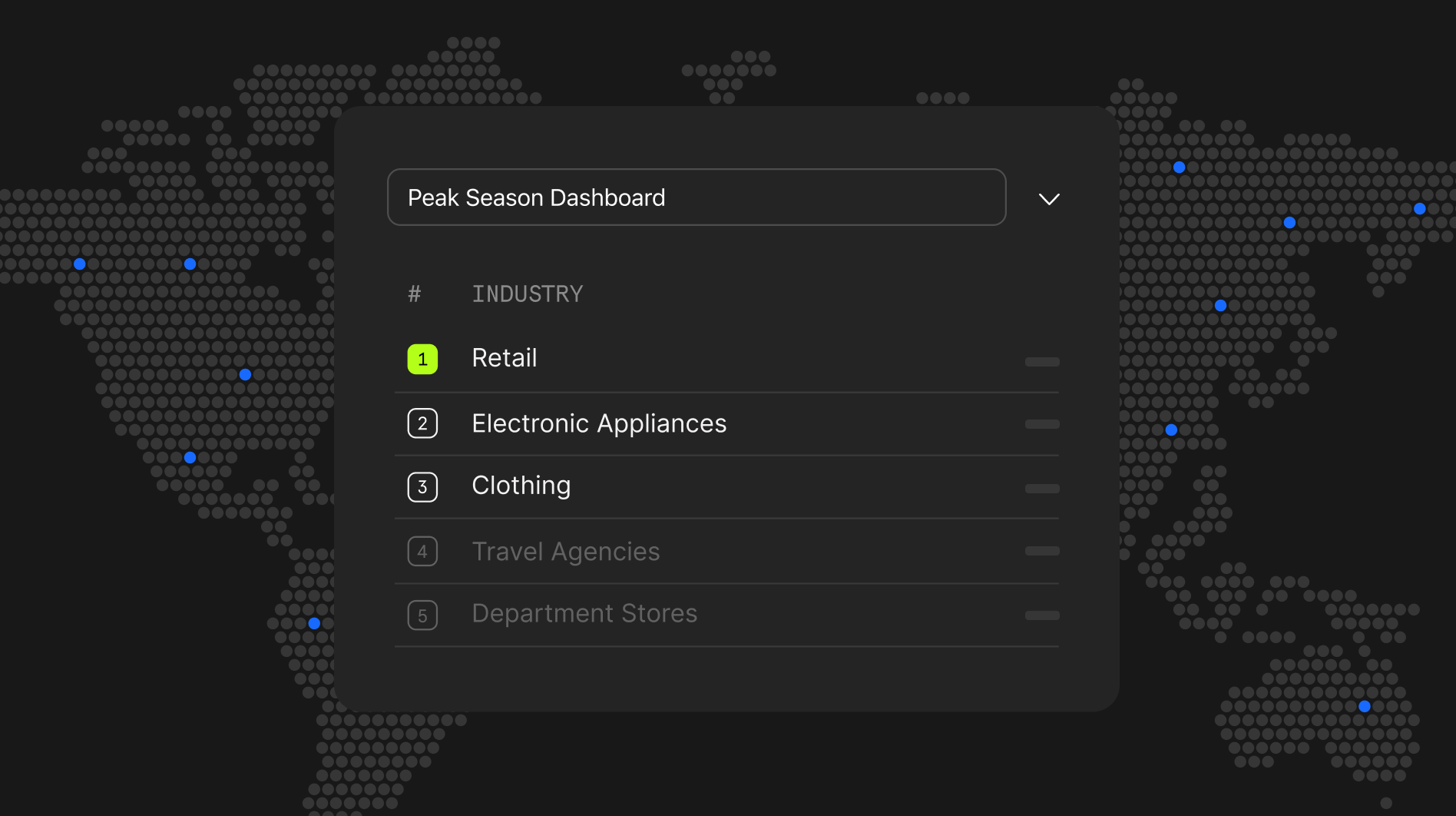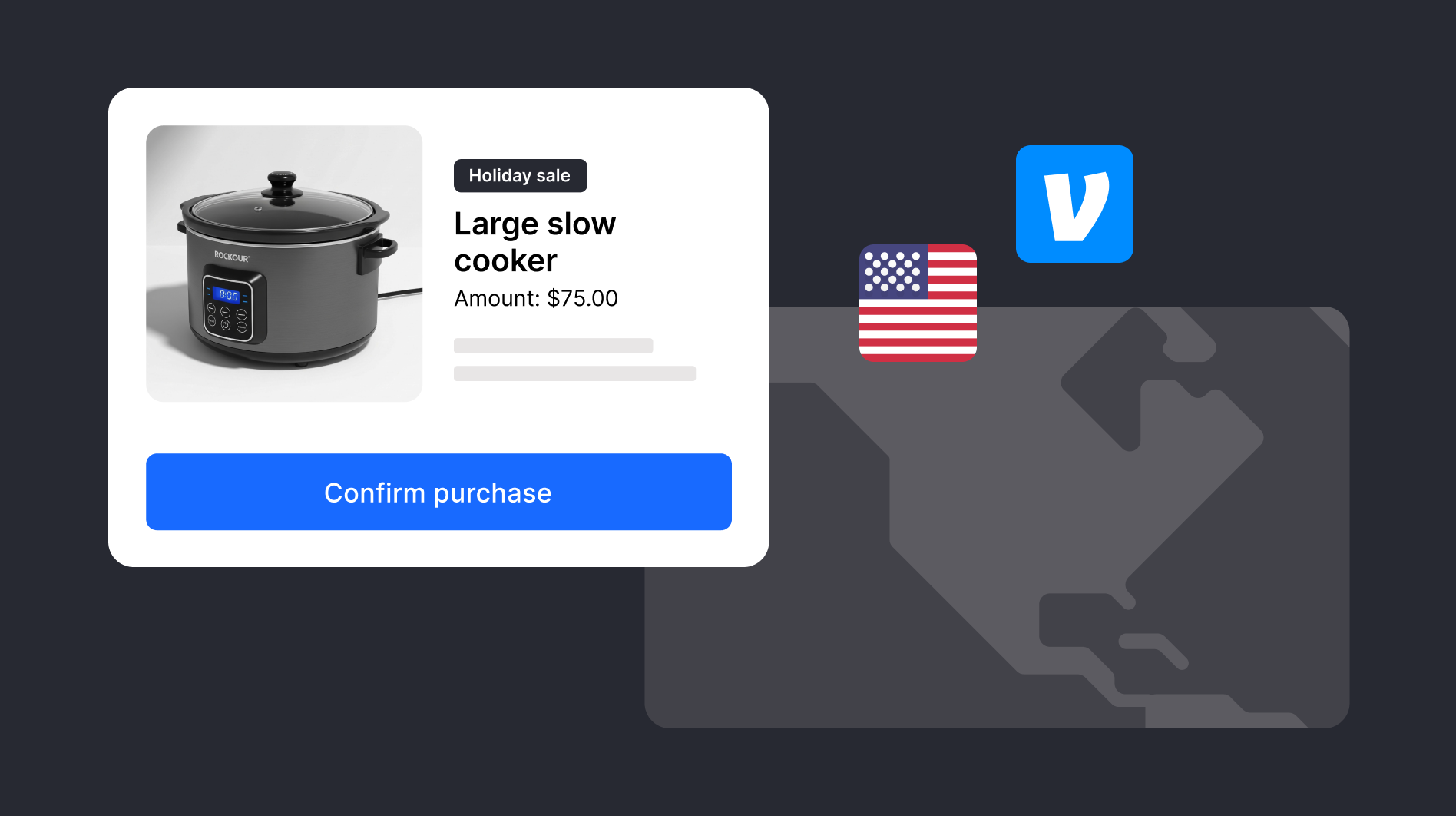When a customer clicks ‘pay’ or taps their card, the payment undergoes a series of checks, approvals, and transaction processing in just milliseconds. If the payment is successful, the customer receives their goods or services. If unsuccessful, the transaction fails, which is often frustrating for everyone involved.
With 2.8 billion credit cards in use worldwide—a number expected to grow significantly in the coming years—credit card payment processing is essential for any business that accepts online payments.
Understanding how it works gives you greater control over the process and its outcomes. With the right tools and knowledge, you can create a smooth and reliable payment experience for your customers.
The result?
Fewer declines, higher approval rates, and optimized payment processes that improve customer satisfaction and drive revenue.
In this article, we’ll break down everything you need to know about credit card processing:
- What is credit card processing
- How credit card processing works
- The costs of credit card processing
What is credit card processing?
At its core, credit card processing is the series of steps that allow businesses to accept credit card payments. These steps ensure every transaction is fast and secure—whether it happens online or in person.
Online credit card processing is vital for businesses looking to meet the growing demand for convenient, flexible payment options. By understanding how credit card payment processing works, you can make informed decisions about the right credit card system for your business, optimize your checkout payment, and deliver better experiences for your customers.
Learn about how Checkout.com supports businesses with reliable credit card payment processing.
How does credit card processing work?
When a customer clicks “pay” at checkout, a fast and secure process is triggered to approve the payment and complete the transaction. This process, known as credit card payment processing, involves four key players:
- The merchant accepts the payment online or in person, in exchange for goods or services
- The acquirer facilitates card payments for the merchant, acting as an intermediary between the merchant and the card schemes
- The cardholder uses their credit card to make a purchase
- The issuer provides the cardholder with their credit card and authorizes transactions on their behalf
This system is known as the ‘four-party model,’ and forms the foundation of most credit card payment systems. Major networks like Visa and Mastercard play a crucial role by connecting issuers and acquirers within this ecosystem.
The journey begins when payment details are entered at an online checkout payment page. This information is transmitted to the merchant’s acquirer via a payment gateway. The acquirer forwards the data to the relevant card scheme, which then routes the request to the cardholder’s issuer, responsible for performing two checks:
authenticating the cardholder's identity and authorizing the transaction. Authorization includes several checks, such as verifying the card details, checking available funds, and evaluating for fraud or account restrictions.
If approved, the confirmation is sent back through the same network to the acquirer and finally to the merchant. The merchant then notifies the customer and fulfils the order.
This process typically happens within milliseconds supported by systems designed to detect fraud and ensure transaction security. Find out more about the role of payment processors in this system.

Who are the actors in card processing?
Card processing relies on a network of interconnected players working together to complete a secure transaction. These actors enable businesses to accept credit card payments and move funds from the customer to the merchant smoothly.
Here’s a breakdown of the key players in the credit card payment system:
- The cardholder is the customer who initiates the transaction using their credit card
- The merchant is the business that sells goods or services and accepts credit card transactions as payment
- The issuing bank provides the cardholder with their credit card, verifies the transaction, and transfers funds to the acquirer
- The acquirer supports merchants by facilitating payments and transferring funds to their accounts
- Card networks are intermediaries like Visa and Mastercard that handle transaction data securely and ensure compliance
- The payment processor facilitates the smooth flow of transaction data between all parties involved
- The payment gateway is a secure software tool that safeguards sensitive cardholder information by encrypting it and then transmitting to the relevant parties for authorization
Credit card processing fees
Each credit card transaction moves through a network of institutions, and each step comes with a cost. For businesses, these fees can impact profitability, making it important to understand how they work.
The average credit card processing fees range from 1.5% and 3.5% of the transaction amount, depending on factors like the type of card and the transaction volume.
The main fees include:
Interchange fees
Interchange fees are paid to the issuing bank with every credit or debit card transaction. They typically account for between 0.1% and 3% of the total transaction value and often represent the largest portion of credit card payment processing costs.
Card scheme fees
Card scheme fees like Visa and Mastercard charge fees for using their networks to process transactions. These fees, often referred to as scheme fees, vary based on the type of card used and the transaction location. They are a necessary cost for businesses relying on major card payment processing networks.
Acquiring fees
These are charged by the merchant’s acquirer for facilitating payments and transferring funds to the merchant’s account. These fees are typically a percentage of each transaction and are essential for enabling merchants to process payments securely.
Processing fees
Processing fees are charged by payment processors for handling the technical aspects of the transaction, such as securely transmitting data and obtaining authorizations. These fees generally include a percentage of the transaction amount and a fixed fee, depending on the processor.
Learn more about payment processing fees.
How long does a credit card payment take to process?
While payment approval happens almost instantly, settlement—where funds move through the system—typically takes one to three business days. The exact timeline depends on factors like the payment method, transaction timing, and fraud checks.
During settlement, the payment processor batches approved transactions and transfers funds from the issuing bank to the acquirer. Payments made on weekends or flagged for fraud or security reasons may take longer to process.
Learn more about credit card processing with Checkout.com
Checkout.com helps businesses process card payments with speed, security, and reliability. From payment processing to fraud detection, our platform simplifies payments and supports your business.
To find out more, contact our team of payment experts.











.png)




